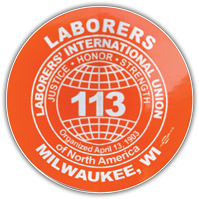One Family’s Journey Toward Healing Chapter II
After six years of struggling with opiate addiction, Ethan Monson-Dupuis appeared to be on the path to recovery. But it wouldn’t last.
Throughout 2014, Ethan excelled in his studies and met his goal of graduating from UW – La Crosse with honors in Psychology and Criminal justice that December. He was also waking up each day and fighting the demon of addiction. But by February 2015, without the structure of college and daily support systems in place, he sadly relapsed once again.
“His birthday is March 6,” said Robin. “Birthdays are a big deal in our family. I planned a big party for his 24th birthday and we invited his friends and family. I got up early that morning to bake him a cake. Ethan was already awake. I knew he was high.”
Following their therapist’s advice, Robin and Jeff told Ethan that he had to leave and canceled the party. They donated the cake to a friend who was having a baby shower so it wouldn’t go to waste.
“It was then that we decided to be open about Ethan’s addiction,” explained Robin. “Until that point, only his close family knew about his heroin addiction. We sent an email to everyone who was invited to the party and told them that we had to cancel because Ethan had relapsed. We asked everyone we knew to pray that he would get back into treatment.”
Asking their son, whom they worried about and so dearly loved, to leave home on his 24th birthday was “one of the hardest things we had to do as parents.”
“We learned we had to set boundaries,” said Jeff. “We told him as long as he was honest, we’d work with him. But if he’s lying to us, we can’t help.” Robin and Jeff saw that Ethan needed to start taking responsibility for his own actions as well as his own recovery if he was ever going to be successful.
Ethan would deny using over and over again, but he didn’t fool his parents.
“I’m a substance abuse counselor for God’s sake; I knew he was high, I knew he had relapsed,” said Robin. “We wanted to help him so much – I just wish he would’ve been honest. Deception is one of the hardest symptoms of an addiction for families to cope with in their loved one.”
“He’d make you think you were the crazy one,” added Jeff.
Ethan’s struggle was taking a major toll on his family and friends – pushing them farther away from him.
Aurora Health Care experts at the Dewey Center’s residential addiction treatment program understand how complex addiction can be. The program includes the Midwest's leading addiction psychiatrists, therapists and clinical nurses, who bring their expertise to each patient's individualized treatment plan. Innovative techniques include the integration of spirituality, mindfulness and yoga to connect with recovery in a lasting way.











